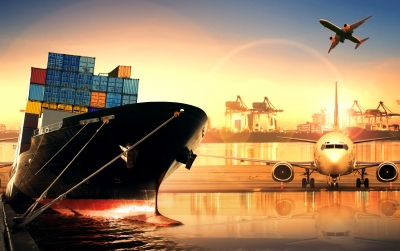-
Digital innovation and safety compliance took center stage at the second Philippines Air Cargo Day 2025, held November 13–15
-
Visiting International Air Transport Association officials from Geneva and Singapore joined local experts to deliver a panoramic view of global cargo trends — and a grounded assessment of what the Philippines must do to stay competitive
-
Valued at $1.44 billion in 2024, the Philippine air cargo market is projected to reach $2.42 billion by 2033 with a compound annual growth rate of 5.34%, according to a report by IMARC Group, a global management consulting and market research firm
-
That forecasted growth, or surpassing the expectation, requires smarter systems, safer operations, and seamless logistics
-
Rising demand for time-sensitive, high-value goods and e-commerce shipments continue to drive investment in airport infrastructure and digital platforms
Digital innovation and safety compliance took center stage at the second Philippines Air Cargo Day 2025, held November 13–15, 2025 at the Manila Marriott, Newport World Resorts.
The event – co-organized by the International Air Transport Association (IATA), the Philippine Multimodal Transport and Logistics Association Inc. (PMTLAI), and PortCalls – convened global and regional leaders to assess the air cargo sector’s trajectory.
Valued at $1.44 billion in 2024, the Philippine air cargo market is projected to reach $2.42 billion by 2033 with a compound annual growth rate of 5.34%, according to a report by IMARC Group, a global management consulting and market research firm.
READ: First half 2025 international air cargo, mail up 7.2% in PH
That forecasted growth, or surpassing the expectation, requires smarter systems, safer operations, and seamless logistics.
Rising demand for time-sensitive, high-value goods and e-commerce shipments continue to drive investment in airport infrastructure and digital platforms.
Visiting IATA officials from Geneva and Singapore joined local experts to deliver a panoramic view of global cargo trends — and a grounded assessment of what the Philippines must do to stay competitive.
Global Trends, Local Strategies
IATA Philippines country manager Samuel David and PMTLAI president Erich Lingad opened the conference by emphasizing collaboration and communication as the lifeblood of innovation and value creation.
Day 1 sessions offered a macro-to-micro sweep: from industry trends and best practices and e-commerce shipping models, to customs modernization; from cargo strategies for the transport of live animals and dangerous goods, to growth through investment in human capital.
IATA E-commerce and Cargo Operations head Andre Majeres; IATA Asia-Pacific Regional manager for Operations, Safety and Security (Cargo) David Wee; Philippine Airlines (PAL) vice president for Cargo Business Jason Siy; and Cebu Pacific Standards and Compliance director Gloria Mae Irabagon led conversations on harnessing current standards and emerging technologies to manage the forces reshaping air cargo – the e-commerce boom, tech-driven workplaces, ESG reporting, and the safe handling of volatile cargo like pharmaceuticals and live animals.
READ: PMTLAI dangerous goods training program re-certified by IATA
To implement these systems effectively, good governance, transparency, and talent development are indispensable.
Agaton Teodoro Uvero, Bureau of Customs deputy commissioner, shared updates on initiatives to streamline transactions with the agency.
IATA senior manager for Governance and Transformation Amy Le tackled global best practices in establishing an efficient, transparent, and reliable financial settlement system while IATA Future Air Cargo Executives ambassador Eira Mae de Pablo provided insights to attracting and developing future leaders of the sector.
A Manifest for Modernization
A culminating panel discussion drew up a modernization wish list: digitalized procedures for seamless transactions, a comprehensive airport master plan, and the engagement of digital-native talent to build rewarding careers in a tech-driven industry.
The event’s success lay not just in its breadth but in the clarity of its message: the Philippine air cargo sector is poised for growth — but that growth must be smart, safe, and digital.
With support from Cebu Pacific Cargo (Silver Sponsor); Cargohaus, e-KONEK, F2 Logistics, Skyway Airlines (Bronze); and Airspeed, Cargo Community Network, Inland Corporation, InterCommerce Network Services; Moverpacific Logistics, and PAL Cargo (Exhibitors); and FedEx and RE-VERT (Partners), the second Philippines Air Cargo Day 2025 proved more than a conference: It was a strategic checkpoint for an industry in transformation.
As the sector prepares for turbulence and tailwinds alike, one thing is clear: the future of Philippine air cargo will be written not just in tonnage, but in terabytes and safety standards.
View conference highlights: https://www.youtube.com/watch?v=u0-ZumQwGYg









